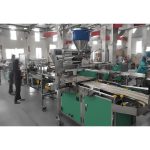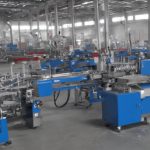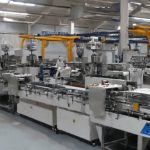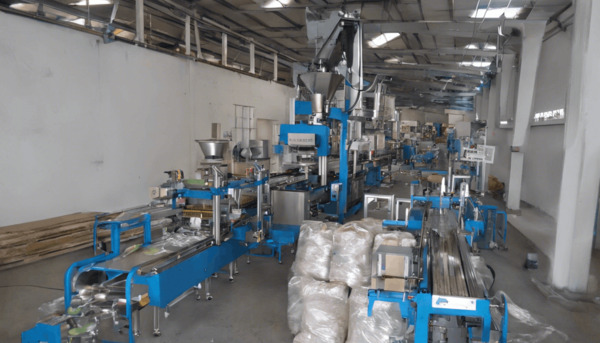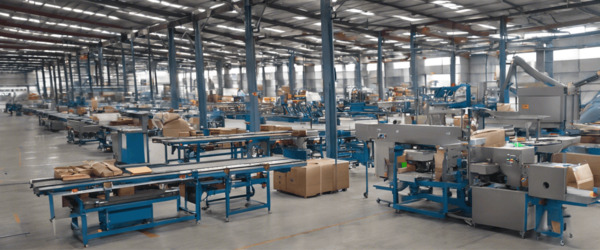
Introduction to Flour Packers
A flour packer is a specialized machine used in the food processing industry, specifically designed for the packaging of flour. The primary function of a flour packer is to fill bags or containers with flour in a precise and efficient manner, ensuring that the product is packed to the correct weight and sealed properly for distribution. Flour packers are an essential component in flour mills and food manufacturing plants, where large volumes of flour need to be packaged quickly and accurately.
1. Hopper
The hopper is a large container that holds the bulk flour before it is dispensed into bags. It is designed to ensure a steady flow of flour into the packing system, preventing blockages and maintaining a consistent feed rate.
2. Weighing System
The weighing system is a critical component that ensures each bag of flour is filled to the correct weight. This system can be mechanical or electronic, using load cells or other sensors to measure the weight of the flour accurately.
3. Filling Mechanism
The filling mechanism is responsible for transferring the flour from the hopper into the bags. This can be done using various methods, such as gravity-fed chutes, augers, or pneumatic systems, depending on the design of the packer and the type of flour being packaged.
4. Bagging System
The bagging system is where the bags are positioned, filled, and sealed. This system may include features such as automatic bag feeding, sealing, and labeling to streamline the packaging process and ensure product integrity.
5. Control Panel
The control panel is the interface through which operators can manage and monitor the flour packing process. It allows for adjustments to be made to the machine settings, such as the target weight, filling speed, and other parameters.
1. Manual Flour Packers
Manual flour packers require human intervention to operate. These machines are typically used in smaller operations where production volumes are low. Operators manually place bags under the filling spout and control the filling process.
2. Semi-Automatic Flour Packers
Semi-automatic flour packers combine manual and automated processes. Operators may still be required to position bags, but the filling and sealing processes are automated. These machines are suitable for medium-sized operations.
3. Fully Automatic Flour Packers
Fully automatic flour packers require minimal human intervention. They are equipped with advanced features such as automatic bag feeding, filling, sealing, and labeling. These machines are ideal for large-scale operations with high production demands.
1. Increased Efficiency
Flour packers significantly increase the efficiency of the packaging process by automating tasks that would otherwise require manual labor. This leads to faster production times and the ability to handle larger volumes of flour.
2. Improved Accuracy
With precise weighing and filling mechanisms, flour packers ensure that each bag is filled to the exact weight required. This reduces waste and ensures consistency in product quality.
3. Enhanced Product Safety
Automated flour packers minimize human contact with the product, reducing the risk of contamination. This is particularly important in the food industry, where hygiene and safety are paramount.
4. Cost Savings
By reducing the need for manual labor and increasing production speed, flour packers can lead to significant cost savings for manufacturers. Additionally, the reduction in product waste contributes to overall cost efficiency.
1. Initial Investment
The cost of purchasing and installing a flour packer can be significant, especially for fully automated systems. Companies must weigh the initial investment against the long-term benefits and potential cost savings.
2. Maintenance and Repairs
Regular maintenance is required to keep flour packers operating efficiently. This includes cleaning, lubrication, and the replacement of worn parts. Companies must also be prepared for potential downtime due to repairs.
3. Operator Training
Operators need to be trained to use flour packers effectively. This includes understanding the machine’s controls, troubleshooting common issues, and performing routine maintenance tasks.
Conclusion
Flour packers play a vital role in the food processing industry, offering a range of benefits from increased efficiency and accuracy to enhanced product safety. While there are challenges associated with their use, the advantages often outweigh the drawbacks, making them a valuable investment for flour mills and food manufacturers. As technology continues to advance, flour packers are likely to become even more sophisticated, further improving the packaging process and contributing to the overall efficiency of food production.
